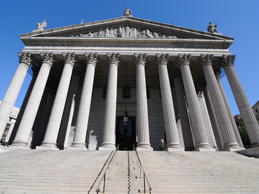Article 78 Petitions and Proceedings
Article 78 Proceedings are brought in New York State Supreme Court to review and challenge the legality of actions and decisions by State Officials or Administrative Agencies. A person bringing the Petition is referred to as the Petitioner and the Official or Agency answering the Petition is called a Respondent.
Click here See Video Article 78 Petitions and Proceedings: Five Things You Should Know About Article 78
 An Article 78 proceeding can be brought to raise the following issues:
An Article 78 proceeding can be brought to raise the following issues:
- Whether a state official or agency failed to perform a duty that is required by law;
- Whether a state official or agency proceeded, is proceeding or is about to proceed without or in excess of jurisdiction;
- Whether a state official or agency has made a determination that violates the law, was arbitrary or capricious or was an abuse of the official’s or agency’s discretion;
- Whether a determination made by a state official or agency after a hearing was supported by substantial evidence.
See also Article 78 Petition and University Students Challenging Expulsion
Where To Bring An Article 78 Proceeding
All Article 78 Petitions must be brought initially before the New York State Supreme Court as a civil proceeding. ?An Index number must be purchased and an RJI (request for judicial intervention) as well, just as in a civil law suit. ?The judge may hold a hearing on an article 78 petition, but usually they are decided only on the papers submitted to the Supreme Court.
 What Types Of Actions Can Be Brought Under Article 78
What Types Of Actions Can Be Brought Under Article 78
An Action To Compel –Mandamus to Compel
When a public official has failed to do something required by law, you can bring an action to compel asking the court to force that public official to perform an act that is his/her duty to perform. ?There are a number of scenarios in which this type of Article 78 can be brought. ?They might include requesting that a local or state agency perform some duty they are required to by law. ?In a criminal setting, this type of Article 78 can be brought to force a Parole Board to do a number of things. ?You should consult with an attorney to find out the limits of this type of petition.
An Action To Review An Administrative Decision –Mandamus to Review
This type of Article 78 is a request to review the decision of a public office (local or state government official) for an abuse of discretion. ?This is referred to a request for review of an “arbitrary and capricious” decision that was without some sound legal basis. ?This type of action can be brought to challenge a number of decisions by state agencies, such as the Department of Motor Vehicles decision to deny one a license, a Parole Board’s decision to deny parole, or any other State or local agency’s decision.
An Action To Review A Hearing Board’s Decision– Certiorari to Review
This type of Article 78 proceeding challenges a decision by a hearing board of a state or local agency arguing that there was not substantial evidence to support that board’s decision. ?The New York State Supreme Court will review the hearing board’s decision to determine whether the evidence at the hearing adequately supported the hearing board’s decision.
An Action to Contest Legal Authority for State Action – Writ of Prohibition
This type of Article 78 proceeding contests the authority of some state or local agency and argues that the agency acted outside of the legal limits of its lawful authority. ?This petition can be brought in anticipation that the agency or official will, or has already, acted outside the scope of their authority.
 An Article 78 Proceeding cannot be used to challenge criminal convictions or criminal sentences.
An Article 78 Proceeding cannot be used to challenge criminal convictions or criminal sentences.
However, it can be used to challenge many other actions by Judges, such as where a Judge has acted beyond his authority (Writ of Prohibition) or has failed to act (Writ of Mandamus).
Exhaustion Rule: Before Bringing An Article 78 Proceeding You Must Exhaust All Administrative Remedies
When an Article 78 Proceeding is brought to challenge the action or inaction of an agency the Petitioner must be sure to have exhausted and pursued all remedies within the administrative process. ?If a particular State or Municipal Agency has some procedure that must be followed to challenge that Agency’s decision, then that procedure must be followed and every possible step must have been taken within the agency before one can petition under Article 78. This is referred to as the “exhaustion of remedies” and is a requirement before an Article 78 proceeding can be brought.? There are certain exceptions to the exhaustion rule such as, where exhaustion appears to be futile, where there will be irreparable harm if there is no judicial intervention or where the state official or agency’s action is unconstitutional or beyond its powers.
